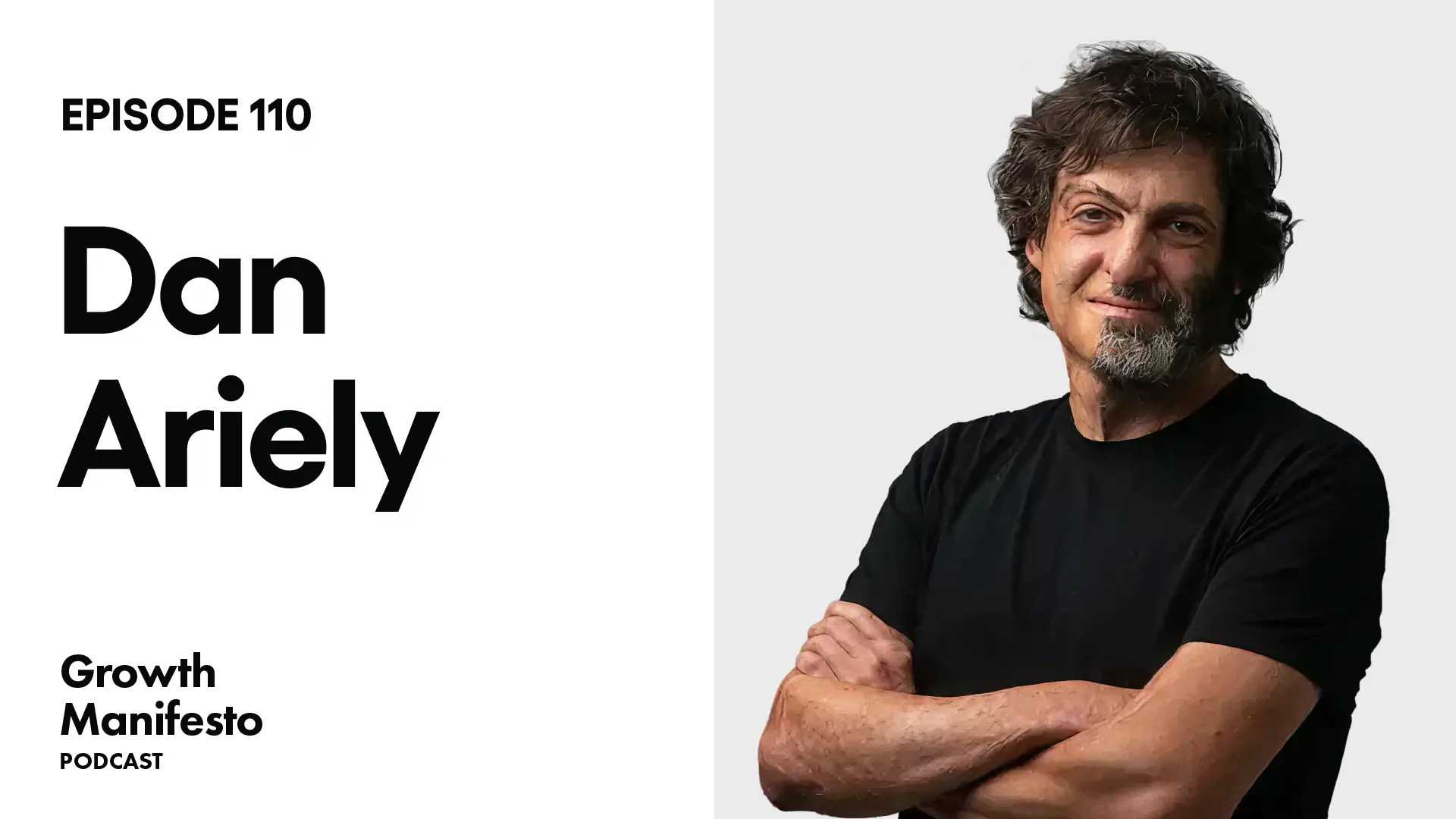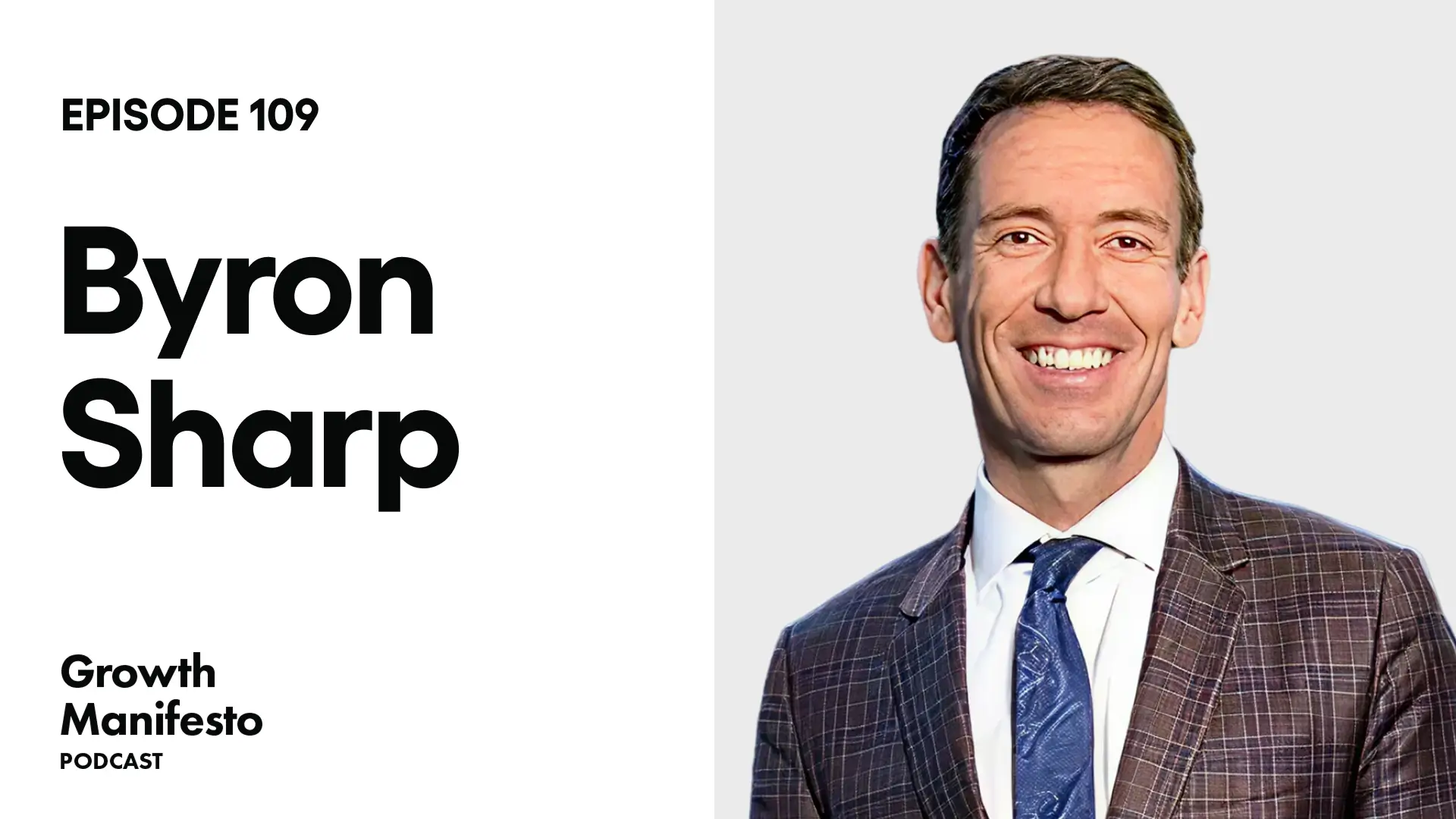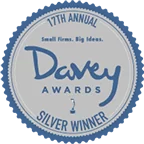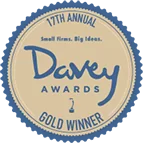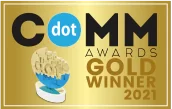How Kerwin Rae built an 8-figure business through social media
This episode is a discussion with Kerwin Rae – business strategist, high performance specialist, entrepreneur, and international speaker. We talk about how to drive business growth through social media from somebody that has built a following of more than 1.3 million people on Facebook, plus we touch on entrepreneurship, leadership, professional development and everything in between. This is a fast-paced, high impact episode that I’m sure you’ll enjoy.
LINKS
- Kerwin Rae on LinkedIn
- Kerwin Rae on Facebook
- Kerwin’s Website
- Unstoppable with Kerwin Rae
- Fast Growth Summit
- Nail It & Scale It
- The Social Experiment
- The Power of Full Engagement: Managing Energy, Not Time, is the Key to High Performance and Personal Renewal
- They F*** You Up: How to Survive Family Life
- The Holographic Universe: The Revolutionary Theory of Reality
—
You’re listening to The Growth Manifesto Podcast, a Zoom video series brought to you by Webprofits – a digital growth consultancy that helps global and national businesses attract, acquire, and retain customers through digital marketing.
Hosted by Alex Cleanthous.
- YouTube: https://www.youtube.com/c/GrowthManifestoPodcast
- Instagram: https://www.instagram.com/webprofits/
- LinkedIn: https://www.linkedin.com/company/web-profits/
- Facebook: https://www.facebook.com/Webprofits/
- Twitter: https://twitter.com/webprofits
- Agency: https://www.webprofits.io
SHOW NOTES
- 00:00:52 Kerwin’s introduction to the Growth Manifesto Podcast
- 00:02:15 Kerwin tells us all about his journey and how he became one of Australia’s most well-known business personalities
- 00:05:54 What does it mean to be an entrepreneur?
- 00:08:04 How would you define the mindset of an entrepreneur?
- 00:10:09 How do you attract people with the entrepreneurial mindset to your company?
- 00:12:36Kerwin says that if you want to know how to become a better person & leader, get to know who you are first.
- 00:15:21 Kerwin explains how a leader needs to be the example especially in trying times
- 00:16:54 How entrepreneurship is a professional sport
- 00:19:07 How a chance meeting with Gary Vaynerchuk helped Kerwin gain his massive social media following
- 00:22:11 Kerwin discusses his social media content and how it helps him market his products and services to his audience
- 00:29:33 Why Kerwin loves Facebook over other platforms
- 00:31:44 How did your content get such a large organic reach?
- 00:33:30 How should larger companies go about creating content that connects with their audience?
- 00:36:05 According to Kerwin, the moment people notice the marketing or the sell in your content, it turns them off
- 00:37:34 Kerwin shares how his Facebook page took off even though they only started off with just 1 video per week
- 00:41:29 Is there a difference between personal and professional development?
- 00:42:36 How do people overcome the hurdles or obstacles they come across in terms of their professional development? How do you motivate yourself to keep going?
- 00:45:45 What should people do when they reach the point where their values or motivations have changed and they’re scared to change course?
- 00:48:40 What are some skills that high performance individuals can work on so that they can get to that next level?
- 00:50:06 Quickfire questions with Kerwin
- 00:54:39 What would you like the people listening to this podcast to do right now?
TRANSCRIPT
Kerwin Rae:I get people saying to me at least a couple times a week, “Thank you so much for the content. If not for your video, I would not be here.” Because there are people that literally planned their day…though I didn’t know this was the thing because it happens so much, I’ve actually discovered. People when they’re feeling in that frame of mind, they’ll actually plan it out. And then they’ll go and say their goodbyes and visit everyone’s Facebook profiles or whatever. And I’ve had that many people that have been in that process. And then a Facebook video pops up of me solving a problem, and they go, “Shit.” And to me, I take that shit pretty seriously because I’m very well aware that there’s moms, dads, kids, aunties, uncles, grandparents and grandmas right now that are present in a family union that wouldn’t be there, if not for the fact I just bothered to share a piece of content around addiction or dyslexia or health or relationships.
Alex Cleanthous: Today, we’re talking with Kerwin Rae. He’s a business strategist. He’s a high-performance specialist. He’s an entrepreneur, and he’s an international speaker. He’s helped over 100,000 companies and businesses across the world in 154 different industries through 11 countries worldwide. He’s the host of the Unstoppable podcast. He runs a number of events, including the Fast Growth Summit, and Nail It and Scale It and has become one of Australia’s most well-known business personalities, all through the power of content, social media, and adding extreme value at scale.
Today, we’ll be talking about entrepreneurship, social media for business, achieving success, growing a personal brand, and how to drive high performance through personal and professional development. And just quickly, before we get started, make sure to go ahead and hit that subscribe button, so that you get the latest episodes as soon as they’re released. Now, let’s get into it. Welcome, Kerwin.
Alex Cleanthous: Yeah, and we’re just having some pre-show chat. And there’s a lot to cover. And we’ve got a very short timeframe. So we’re both going to talk fast.
Alex Cleanthous: That’s what we said at the very start, and we’ll try to get through…
Alex Cleanthous: So we’ll try to get through a lot of stuff. But we’ll just make sure that we will talk about the good stuff. And we’ll go into some detail across some of your successes because you have a lot of them.
Alex Cleanthous: So can we start with some history? What’s been your journey? Because I’m sure now everyone just sees Kerwin across social media, which has got millions of followers and conferences and all that. So yeah.
But it wasn’t until I started to realise that money was effective—we didn’t have a lot—there’s a saying that voids breed values. And because we didn’t have a lot, I assumed that was something that was missing from our lives. It may have added a little bit more value. And so from the moment I worked out, I could make money. Yeah, I was going for anything, washing cars, mowing lawns. The first business was actually mowing lawns, or washing cars actually. And me and my mate got a bucket together, and we washed the neighbour’s car, and he had a steel watch on, and we put scratches all over it.
And so, our parents forbade us from doing that, and then we grabbed the lawnmower and didn’t ask the parents to do that. And then we ran across the driveway, hit a stone, smashed a giant window. And then I settled on…it’s actually quite interesting because I was living in a semi-rural area at the time in Townsville selling manure because everyone was doing that at the time, it was quite a fad. It still is. But we decided to put it in garbage bags, put it in wheelbarrows, and take it door to door. And that was actually a raging success. In my first six weeks there, we made about $360 bucks. Me and my mate were about 13 years of age and was all in the pursuit of making money via the Townsville show.
Alex Cleanthous: Wow.
I considered the only thing I had was my sporting prowess, and it wasn’t great, but I at least thought I had enough potential to be a professional sportsman. And then at 15, I fell on a broken bottle, cut my nerves, tendons, and I was told I was going to be disabled. And so that in itself created a very foundational journey at a very important stage of life where I learned fundamentally how to overcome massive obstacles. And it really did kind of shape where I went to from there.
And I had about 48 different jobs throughout school before I stumbled upon, I guess you could say entrepreneurship. And like many other people, I failed a few times. I had a security company that didn’t go so well. Before I actually started to find my groove. And my groove was in the process of buying, building, selling businesses, but where I really started to thrive was in the area of education. And that’s where I guess it’s really paved my way from motivational—or not motivation—more of a purpose-driven perspective. Because I worked out very early—in my mid-20s—I could make money, but I realised I could make money doing a whole range of things. And there were some things I made money at; I was just miserable.
And so after making money, losing money a couple of times, yeah, that’s quite humbling, you get the opportunity and reflect and go, “What were the things that I was doing, that I really enjoyed when I was making money? Let’s do more of that.” And that’s how I kind of ended up where I am now.
Alex Cleanthous: Yeah, right. I mean, that’s such a good intro. I mean, you’ve covered a lot of stuff in just a couple of minutes, mate. So I do appreciate it, I think, because I’ve got like a few talking points, let’s come to entrepreneurship because you did mention that. And I think that will be a good next step. To you, what does it mean to be an entrepreneur?
Alex Cleanthous: I know, we got to go down the path though.
So I can’t go out to you and say, and you say, “Oh, you play tennis?” “Yeah, I’m a professional tennis player, Alex.” I can’t do that, because I’m not a professional tennis player. And so, I think there’s a lot to be said, for giving credit where it’s due. And once you’ve been in business for a period of time, where you’ve got some runs on the board, you’ve got some levels of successes, you’ve got a level of skill and a base level of… base, base basic fundamental mastery, I think, then you can really start looking at kind of hanging on that mantle.
I think for a long time, I think a lot of people put that term up on a mantle. It’s been a long time since I’ve really cared about what people said, or how people labelled me, but I do understand, like, it’s a badge, and everybody wants to wear it. But in some industry such as being a professional sportsman, you’ve got to earn that title.
Alex Cleanthous: Yeah, right. And so what do you call people that are starting on that journey, but that haven’t achieved success or mastery?
Alex Cleanthous: Yeah. Because the reason I asked that is because there’s also the entrepreneur’s mindset.
Alex Cleanthous: Now, the mindset, I mean, it’s we try to hire people that have the entrepreneurial mindset. So they may not be entrepreneurs, but they have the mindset of an entrepreneur.
Alex Cleanthous: So how would you define the mindset of an entrepreneur?
Alex Cleanthous: Your ability to add value, and I think there’s also a component of ability to take action in fear of… absolutely, in the face of failure or something along those lines.
And so whether you play above the line or below the line, and employees, or most employees, or what I call staff below the line where they’re trying to tick boxes. They’re starting things when they’re not necessarily following through. When you’re playing above the line, you’re all about completion. And that, to me, is the entrepreneurial mindset, because as an entrepreneur, based on a category I just gave. You’re not worth anything unless you can produce something.
And so that’s a form of measurement on how I’d measure it. And so for me, and it’s interesting, because we look for team members who have that entrepreneurial mindset, and then sometimes we get really upset because they go and start their own business. And I’m sure you’ve seen this yourself, Alex, the ultimate talent member, I hate using the word employee or staff, is someone who’s had enough experience to realise they don’t want to be in business for themselves, okay, but they realise that they do think like a business owner.
And that to me, I think some people get stuck in that space where they think like a business owner and employee, but they keep trying to do the employee thing, but it’s not just not cut out for their risk profile in some cases.
Alex Cleanthous: So hiring…Well, in my experience, if you have a team of people that have the entrepreneur’s mindset, and if you can attract them, that’s a very powerful team. That’s the kind of team that could win championships. How do you attract as a company? Yeah, so for the leaders out there who want to hire these kinds of people, how would you attract them? And what would you do to keep them?
And so for me, when it comes to talent, and this question, specifically, it’s how can we assess what good talent is very quickly in the hiring process to ensure that this hasn’t been a waste of time? And so for me, in order to get those right people, we have to create an environment that is attractive for them and want to work in. And that’s what a culture is. And a good culture is bred by good leadership and performance culture is bred by performance leadership. Leadership is a visible trait; it’s not a badge. It’s a game of visibility. And monkey see, monkey do.
And so for me, if you want a high-performance team, first of all, you have to create an environment where it’s very welcome. But secondly, there needs to be a benchmark and an example that is set by someone, ideally, the CEO, who is consistently demonstrating a set of values that are performance-based values, but it’s evident in the way that they talk, the way that they walk, the way that they show up, the way that they complete. And that then becomes the benchmark for us to leverage on and go well, hang on, because if I’m not willing to do something, then that gives someone permission to essentially take the same position.
And so for me, yeah, high-performance environments, in order to create a high-performance environment, first of all, it has to be welcome, as I said, and that’s an important point because some people hire a really great talent, but then they surround them with toxic people who are threatened by good talent, who undermine them and sabotage them. And so that to me, is again, it’s an aspect of the culture and what’s acceptable, and what the standards are, which will determine the level of trust and how well people perform.
But if you don’t have a high-performance later, you’re not going to have a high-performance team, in most cases, unless you have high-performance leaders within that team. Jocko Willink said it best, “There are no bad teams, there are just bad leaders.”
Alex Cleanthous: That’s such a good point. And I got my talking points, but you’re making me jump all over the place because there’s so many things which I want to ask you right now. Okay, let’s say that then you look at your team, and your team isn’t the team that you want. And if we take like Jocko’s point that there’s no bad teams, there’s bad leaders, what’s the first place to start to…?
Alex Cleanthous: The mirror.
If you’re looking around your environment and, “Oh, shit, it’s my team. Gosh.” Yeah, there’s only one consistent thing in there, and that’s you. It’s like the person who goes from relationship to relationship to relationship. And every time they go to a relationship, they have the same problems. But they come out, and they go, “I just don’t understand why I keep attracting that same personality?” Well, you’re that person, you’re more than 50% of that creation.
Alex Cleanthous: So where do you start when you say, “All right, wow, damn, it is me?”
Alex Cleanthous: What’s a place that you can start?
And I’ve done that so many times this year, because we’ve had some challenges as a live event company, and I can’t tell you how many times I’ve had to take a knee in front of the team, say, “Guys, it’s my fault. I accept full responsibility for how we got here.” We had a restructure recently, and I’ve been burning, because we took about a $12 million hit this year, but we’re very well capitalised. And so we’re quite strong, but at some point, we got to the point, we’re going to have to restructure because as we pivoted to digital, digital was tracking incredibly well, but it didn’t quite make the mark of where live was in order to make things balanced.
Okay, we’re going to have to do a little bit of a restructure. I said to the team guys, “I’m really sorry.” You know, because I’ve spent the last nine months trying to fucking bust a melon and a nut trying to create sales channels and marketing channels in order to build sales and revenue so that we could match lives, so I didn’t have to have this conversation, but we do, and so it’s my fault. And so I want to apologise for that.” And as a result, we had to let a few people go. And that’s never nice.
And that’s, again, an important aspect of leadership is that important, I’ve been able to embrace humility and embrace the challenging things. And that for me was a big one, and my entire team got to see it very publicly. And I didn’t hide from that fact at all. And again, what people see, it breeds behaviour.
Alex Cleanthous: So many good points in there. I think it is interesting when everyone wants to have a company that’s all just happiness and beanbags, and everything is good, but in business, it’s also can be hard sometimes, it’s also you got to make the hard decisions, that’s for the greater good, and how you approach those situations, sometimes it’s your first time, sometimes it’s your 10th time, but they’re never easy. And they’re always a challenging part. And if you’re a good leader, it becomes easier, but it’s never easy. It’s never easy.
And as you said, anyone can lead on a 28° day. Anybody can lead on… Anyone can do personal development when life is great. If there’s 28°, and there’s dolphins on the starboard, the 15-knot wind, were cruising baby, I can lead this boat anywhere in the world. But how are you when there’s a storm approaching? How are you when it’s on top of you? How are you when it actually escalates to a cyclone? Are you in there hiding in the galley with everyone else? Or you’re out there charging and strapping battening down the hatches, and that’s what people see. And that will inspire people to perform at levels above and beyond what in most cases they would otherwise because you’re the example. It’s a visible example. And that shit’s inspiring.
Alex Cleanthous: Yeah, I mean, for me, like in those kinds of situations, it is like an athletic sport, like your fitness is important. Your psychology is important; the people that are surrounding you are important.
But if you look at the… I don’t know, if you’ve seen The Powerful Engagement, or if you read the book, The Powerful Engagement…
Alex Cleanthous: Mmm-hmmm.
But as business owners we’re in 98% competition, maybe 1% training, and half a percent rest and recovery. And you know, that’s why the entrepreneurial landscape is littered with casualties from not just physical health, but also mental health because it is a duality. And to me, if you approach it like what you’re saying, as a professional sport, well, there’s a psychology to professional entrepreneurship, there’s a physiology, there’s a biology to performing at a high level as a business owner, and there’s a fitness. Great contrast.
Alex Cleanthous: And just like—just to wrap up this point as well—just like a professional athlete, surround yourself with the best coaches, visualise at the times when you’re not training…like, these things are important.
Alex Cleanthous: Okay, man, we could spend a whole hour just on leadership. Let’s just up it. So now let’s shift to social media, right? Because, last few years, you plan up on social media. 1.3 million followers on Facebook, 166,000 plus followers on Instagram, 52,000 subscribers on YouTube, there’s TikTok, I’m sure there’s Snapchat, I’m sure there’s everything. How…but what did you do? Like what was your secret sauce everyone wants to know. What’s your approach?
He came out and spoke at the back of the room, I hit him up, and I was like, “Oh, hey, Gary.” And at that time, I had like, 52,000 followers on Facebook, shit engagement, but I thought I’d kind of like “Oh, yeah. Look, I’m on social media.” And I didn’t know as much about Gary at the time. And I learnt very quickly. And yeah, he spent 15 minutes very kindly, just taking me apart, and just telling how much my social media sucked. And I went away that Christmas—Christmas 2015—I was like, right, something’s got to change, I need to make a serious shift. And I had six weeks off, and it was too long, but it was good because I got bored.
And I decided, right? Social media is going to be it. And so I came back, hired a filmmaker, literally the 23rd of January, that relationship didn’t work out. And then six weeks later, I found another guy, Mateus, who is now still my filmmaker today. And I just got a guy just to follow me around with a camera. And we initially launched with a piece of content called The Social Experiment, which was just a documentary of behind the scenes of me transitioning between a traditional marketing business, and a social media marketing business. And that became what you’d call a pillar piece of content.
But where we really started to blow up is when we were taking these documentaries, like these 15, 25-minute documentaries, and we’re taking 30-second clips and 60-second clips and two-minute clips of me having a charge or dealing with the situation. And yeah, it just really blew up. And I think it resonated for a whole range of reasons. People say… and by the way, gosh, I remember this is back in the days when we’re getting like, yeah, reach of 30 million, in some cases a week, organic. And that was, and going back a while. But it just blew up and blew. It just kept on going and going and going and going and going. And it was really quite humbling.
But the only thing I can really put it down to is, apart from really good timing, is really good quality utility content that was marketed in a very strategic way so that it didn’t look like marketing, that solved a whole bunch of people’s problems without them having to spend a cent with me, that made them… that made me endearing, it built trust, it built rapport. And as a result, it created a flood of not just interest and engagement, but also revenue and sales in the back end.
Alex Cleanthous: Yeah, right. And your content, you take little snippets also of your conferences as well, of your seminars as well and give sneak previews, and it’s good stuff, right? And so, you found this certain content that performs better, the certain links or anything?
I get captured talking about everything I’m interested in. And so I’m interested in, obviously, business, social media performance, parenting, mindset, spirituality, but it’s been amazing, the piece of content that has blown up more than anything else is parenting, which is quite interesting. And when you really look at this statistic I’m about to give you, this is going to make you go, “What the fuck?!” 70% of our audience on social media are not entrepreneurs or in business.
So and again, let that land, and right now, we have no commercial offering for the general public. We have one that we did five years ago that we’re bringing back called, The Power to Create, which is going to be for the general public, we’ll be launching that again next year. But up until now, we don’t. So we haven’t even really scratched the surface of our audience yet, we’ve only been really servicing a very small segment of our audience.
And so within that, obviously, a lot of entrepreneurs are parents, but the parenting content, it has just gone bananas. And this may be helped me identify that it’s not just a lot of entrepreneurs that are wanting to know how to be better parents or better leaders as parents, but there’s also just a lot of people in general that just want to be better as human beings and create a better generation of humans. Because I think their parents in some way have maybe fucked them up.
Alex Cleanthous: I mean, I think there’s a… I forget the book; it’s something along the lines of how to not fuck up your kid or something like that. Right?
Alex Cleanthous: Yeah, that’s the one.
Alex Cleanthous: Yeah.
Alex Cleanthous: So what do you say then to this discussion, we’ll call it, where you should be making content that is for your audience only, to stay focused on that and not… because you seem to be stretching it out.
Alex Cleanthous: But it’s parenting content. It’s not what you sell them about.
Alex Cleanthous: Yeah, this is the part which I want to talk about.
Alex Cleanthous: Yeah.
But when someone watches that video, so the top of the funnel video might be on parenting, okay. And so that’ll capture the people. And when we go broad, not just parents in business, I go broad. And because I want everyone who likes this to share it because they might not be a business owner, but at the top of the funnel, I don’t really care, they will share it in their network; they’re going to have business owners in their network, that’s going to add them to the top of the funnel. We then retarget those people with content that is a little bit more business orientated.
Okay, and then we slowly as we walk down the funnel, and you know, some of our funnels are between seven to 30 videos deep, we essentially get the content more pure, related towards business. And so as a result, we get this really segmented qualified audience there in the bottom. And we might start with a segment, let’s say have a list of 5,000. But by the time we get down the bottom, it might only be 250. But the segments that we’re starting with right now—we’ve got bottom-of-the-funnel campaigns running, we’ve got like 49 million people in the audience at the bottom of the funnel, on one funnel.
And so for us, we just continually roll up, it will have all these different top-of-funnel hooks that will get people into the funnels, and then we’re just constantly putting people through a funnel. But what makes our content or our marketing strategy really, I guess, unique is we’re not bombarding people with ad messaging, we’re not bombarding people with direct response, we’re essentially sequencing where it’s roughly every seven to 15 exposures, we’ll drop a call to action in front of them.
And here’s what I’ve discovered, if I get a direct call to action, for a lead-gen, I will pay and sometimes more, sometimes less, but let’s say on average, I was paying about 42 bucks a lead, okay. But as soon as I switched to the utility funnel, where I wasn’t putting in a direct response at the top of the funnel, I was warming people up; I was getting one- and two-cent views for the first seven to 10 videos. And then I was getting $1.65 conversions on the bottom.
And so that engages this psychology, it’s called the mere exposure effect, which is a psychological phenomenon, whereby people tend to develop a preference for things, once they become familiar with them, and in social psychology is called the familiarity principle. And you’d know this concept very well. We need to be exposed to a product or service or a brand multiple times before something inside of it shifts, it clicks, and then we go, I want to actually talk to someone about that. Not buy, talk.
And back in 2005, it was 5.4 exposures, in 2012, it was 12.8 exposures, and they predicted by 2019 – 20, it was going to be 20 exposures were required to trigger that same level of familiarity. And so in a new age world like this, we’ve got to ask ourselves the question, how do we market to an audience that in most cases, they don’t want to be marketed to? Well, you don’t market to them, you help them. And you understand that the social environment for marketing is not the traditional environment for marketing.
The traditional environment for marketing, it’s culturally acceptable to pitch. In the social environment of marketing, it’s not. It’s like inviting 50 people to your birthday, and 49 show up with presents, and one shows up with a fucking sandwich board and brochures, and they’re trying to sell the other 49 people, it’s just not socially appropriate. Okay. And this is the challenge that people have, they’re taking traditional methods and trying to deploy them in a social context and wondering why they’re polarising the audience, or they’re not getting the sentiment or the traction that they’re really looking for.
In a social context, we’re mammals, we’re collaborators, we like to help people, and that by virtue is what creates attention. Is it of some help? Is it going to entertain me, inform me, educate me, make me laugh, make me cry? How’s it going to add something to my life right now? Outside of another message, another direct call to action—which after a while, as you know—we just end up turning into banner blindness or resentment. And that’s even worse. Imagine having a client see your brand, and they’re like, “Oh, I see their fucking ads everywhere. I hate them.” Like, that’s just not the sentiment you want.
Alex Cleanthous: Yeah, we do a lot of content. But I think we also do a lot of retargeting. And I’m sure that there’s lots of companies who’ll be like, “that Webprofits.” Because I’ve been retargeting on Facebook since 2012, so there’s teenagers that now have competitive companies now. They’re like, “Hey, I saw you when I was just a teenager. Oh, my goodness.”
Alex Cleanthous: So what platform is your favourite platform right now?
And so there’s still reach to be had. And I just love the platform, because I can literally get on there, and it’s just stream after stream after stream of people who are sharing how their life has been impacted in some way, shape, or form. And I’ve received—and this is a really interesting consequences side effect of content marketing—I have now received in excess of 1000 messages, one I even just got the other day, though, it’s probably down a little bit now, where I get people sending me at least a couple times a week, “Thank you so much for the content. If not for your video, I would not be here.”
Yeah. Because there are people that literally plan their day—though I didn’t know this was the thing because it’s happened so much—I’ve actually discovered people when they’re feeling in that frame of mind, they’ll actually plan it out. And then they’ll go and say their goodbyes, and you know, visit everyone’s Facebook profiles or whatever. And I’ve had that many people that have been in that process, and then a Facebook video pops out of me solving a problem and they go, “Shit.” To me, I take that shit pretty seriously, because I’m very well aware that there’s moms, dads, kids, aunties, uncles, grandparents, and grandmas right now that are present in a family union that wouldn’t be there, if not for the fact I just bothered to share a piece of content around addiction, or dyslexia, or mental health, or relationships.
Alex Cleanthous: And I’ve seen some of those streams of comments on some of those videos; they get pretty emotional, they get pretty…
Alex Cleanthous: …full on. Just to lift it back up again to more marketing stuff, but like, is there a link… Let’s talk about the organic thing, right? Because that organic side of things…you started and it was already dead.
Alex Cleanthous: Dead. Right? And the thing is, it was generally dead for most companies that were doing that non-engaging, pretty boring content. But how did you get such large organic reach? Was it the…?
And I said that to everyone on the team, my ex-wife, and everyone was like, “Yep, yep, we’re all on board.” And I’m like, “Well, that was part of the deal.” And she’s like well, “Now at a point now where I’m uncomfortable.” And when people get to see you, it’s one thing, but it’s when they get to learn who you are, it’s when they get to see you in a tough situation, it’s when they get to see you handle failure, or handle success, or handle a highly vulnerable situation, they really start to fucking care.
And I think that’s where we really struck a chord, like, people look at me, and they go, “You just…” And I’ve heard this so many times where people come and go, “Man, you’re just so fucking real. You’re just so real.” And I said, “Yeah, I am, like, I’m real flesh and blood.” But I just don’t care what people think. And as a result, that gives me a liberty of expression that I think inspires a lot of people to go, “Fuck. You know, I wish I could just be like that,” or “I am like that, and I relate to that.”
Alex Cleanthous: So then, what would you advise to the companies that are earning between, say, $1 to $100 million a year or whatever, right? And let’s say that they’re more than $50 to $200 million companies, that have staff, operations and all that, and they now want to really start to get traction on social media, but they’re like, “What am I going to do to just get someone to follow me around all day? Like, how can these larger companies start to kind of…
Alex Cleanthous: …produce content that connects?
Now there might be some businesses where we can’t document what we do. And I say, “Well, I daresay you probably could. You just got to think a little bit strategically about how you could actually go about that.” The challenge is in obviously relinquishing the power of a brand. But what is Big Brother? A Big Brother, who’s Big Brother? How many people are associated with Big Brother? It’s not funny. And I’m not saying you want to become a Big Brother, but what I am saying is, there’s no reason why you can’t have some form of reality media division or reality media content production division, in any organisation, we just look at how do we actually capture something that we do that would really resonate well with our audience that translates?
And look, I think it’d be hard-pressed to find some businesses that couldn’t. Because we’ve done this with landscape gardeners, directional drillers, mining companies, seed companies, like…it can be done. It just comes down … We had one guy who did road-surface concrete preparation, and he was getting business off Snapchat, just by Snapchatting him grinding concrete. So to me, it’s about just first of all being visible to your audience, but then on some level, exposing them to a narrative, and looking at what those narratives look like. Because not everyone might be able to go and create some kind of documentation content, you might go, “Well, we don’t have the ability to document anyone. Ts and Cs and rules and laws.”
Okay, well, great, then maybe your strategy needs to be content creation. My strategy is content documentation. And that works really well for me because I don’t have the time to sit in front of a camera. Whereas if you find yourself at a bypass where you don’t have a personality, you don’t have a narrative, you go, “Okay, well, what are some of the problems we can solve for our audience? And let’s create really compelling and engaging content that would solve some of those problems.” But the most important thing is, without trying to sell them something.
This is what I want everyone to understand. Because the moment people sniff the sell, the moment people sniff the marketing, that’s what in some cases, turns them off. And that’s why our content works so well because there’s just no marketing. And as a result, we wake up every day to hundreds of messages from all over the different platforms, asking—from people all over the world—asking if we’ve got something we can sell. And that’s the thing, it’s a longer play, when you’re playing the content game, as you know, Alex, but it’s one in the social environment, you don’t have a fucking choice. And if you try to force it, you’re going to be that creep at the bar that keeps rocking up on girls. And you’re trying to take them back to your room on the first line versus, “Hey, slow down, let’s have a chat, let’s go out a couple times. Then maybe let’s exchange phone numbers. Who knows?” And that’s the environment we’re living in right now. And we have to cater to that exposure, being metred over a period of time and stop trying to go in straight for the kill straight away.
Alex Cleanthous: We’ve been doing content like that for years and years and years. And it’s like, you need to kind of separate, in your mind, you’re making content? Make the very best content, you can forget about selling anything, link it to what you sell if you can, but don’t try and sell anything, and just basically educate or something like that.
Alex Cleanthous: And part of the reason that we’re doing the podcast is because, again, with the volume of content required, we want to add value, we spent a lot of money on this, just to add value. And we talk about everything as well. But again, just, it’s to invest.
Alex Cleanthous: Wow.
Alex Cleanthous: Wow.
Alex Cleanthous: What about the videos? How long were they?
Alex Cleanthous: Wow. And did you do little snippets as well? Like little…
Alex Cleanthous: Yeah.
Alex Cleanthous: So any good hacks then just since like, you just kind of chucked a little process in there that you just went, “oh yeah. By the way, we just did that.” I’m like…
And so we’ve found the sentiment of the back of a good content strategy; it can take your cost per conversion from $42, down to $1.65. And Facebook’s in the business of, yes, they’re in the business of making money, but they can only make money if they retain users. And so to me, it’s about how do we play into their… because people keep saying, organic is dead, but you’ve only got to look around and see that there’s still plenty of organic influences out there that are doing really well, but their content’s just on point, production values got higher, sound value, everything has gotten higher. But at the same time, now we have these little platforms like TikTok popping out, and you’ve got 13-year-olds making $1.8 million a deal on endorsements. So…it’s not….
Alex Cleanthous: Yeah. And I do like the idea of just having some type of documentary of these larger companies. I mean, that stuff will be interesting. I’d love to see Coca Cola, for example, what the hell happened to Coca Cola?
Alex Cleanthous: Oh, yeah. I mean.
Alex Cleanthous: Yeah. And I think it’s also good just for those large companies to have practical lawyers that will actually let some stuff go through. Because I think everyone will be scared of the legal. Like we can’t show that because what kind of if. What if, that would be the biggest concern.
But a business will never outgrow the development of the owner. We’re always constantly trying to grow the business in some way. And whether it’s a scale-up or a scale-down, you’re still trying to grow something. And businesses are organic in their ability to grow, but like a plant in the garden, they need to be tended. And I think that’s an important part of the process…is the tendering part and making time to, yeah, support the growth.
Alex Cleanthous: So what other areas in a professional sense for marketing leaders, for business leaders, for CEOs, founders…
Alex Cleanthous: …there comes a point where you’ve achieved a certain amount of success, and the thing I’ve seen is that that’s where people stop their growth. And so, how do people get past that point? You know, is this where you’re like, “I’m really busy now. I’ve studied, I’ve got professional development, I am making some good income, and my business is this, I don’t have time anymore.” Like, how do people…
Alex Cleanthous: Yeah, for professional development. Do you know what I mean? Like, how do you now…
Whereas for me, it’s just, frankly, the sooner professional development becomes a way of life, the sooner you just get used to the process of growing. And that’s what as organisms, we are here to do; we’re here to grow and evolve. And when we limit our potential to do that, we limit our potential to evolve. And to me that’s…ultimately the greatest fulfilment of our purpose is being able to experience as much as we possibly can, while we’re here in the areas that light us up the most.
And I think sometimes when people go, “Well, I’m just not motivated anymore,” you’ve really got to start looking at what are your motives? What are your values? And you probably get this as well Alex, people kind of go, “So, how do I motivate myself? What’s a good book for motivation?” I say, “Well, it’s a fucking stupid question, first and foremost.” Okay. Because if you’re looking for a book, or a type or a podcast to motivate you, you’re already fucked because you’re looking on the outside.
Motivation is on an outside job, it’s an inside job, and the only way you’re going to find what your true motivations are is by getting to know who you are, and what your genuine core values are—because a core value is a motive. And when you understand what your motives are, you’re better able to understand the decisions that you make, and you don’t have to think, “Oh, why do I keep making these silly decisions?” Or, “Why am I not motivated to make money when I really should be, and everyone else is?” And so, for me a big part of the performance game is self-awareness. And if you don’t, your development will always be limited by what you’re aware of as of your obstacles or your opportunities.
Alex Cleanthous: Because I sometimes mentor people. And one of the questions I ask is, what do you want? I think that that’s a really good question. It’s like, “Hey, I’m not motivated anymore,” or, “Hey, I feel stuck,” or, “Hey, I don’t know. Like, I have lost something.” So, like what do you want? And it’s such a hard question for people to answer sometimes because you might find yourself on a path. And you’re now lost in that path.
Alex Cleanthous: Yeah, when I was younger, I think maybe the mid-20s, and I had this job. And I was selling ringtones and love calculators on phones, sometimes killing it, right? Killing it. I think I was selling so much. But then a couple years in, I think we were the light, fast 50 world, were at the top through this, terrible. It was not value-adding to the world. But I had enough money at that point, that it wasn’t about the money anymore. And I was so interested that I was like, because up until that point, it was all about the money. I was like, “I don’t care what it is, just as long as I got money.”
There comes a point where it’s enough, and then all of a sudden, everything changes. Right? And so it’s like what do people do when they’re at that point where they’ve changed, or something’s changed in their values, and they have realised that they’re on the wrong path, or maybe it’s too scary to change paths, or maybe just the fear starts to come in?
You know, and this happened with our kids yesterday, the kids were wanting to watch screen while I know, no screen time. Go and… and use your imagination and there was winching and bitching, and whining. And anyway, two minutes later it was silence and we outside, you know, they’re playing with cardboard boxes. And they played with cardboard boxes for three and a half hours. And David Deida, and I’m pretty sure you’ve probably read The Way of the Superior Man. He talks about a really important phase of life for men. And, I’d go as far as to say, for women as well.
You know, when you are unsure of what to do when you are lacking in direction to actually do nothing, like, actually dedicate time to doing nothing, void of distraction, because if you’re in that bored place, and you fill your life with distraction, you may not see the thing that is just burgeoning under the surface that when it comes along, if you’re looking at every other shiny object there, you might miss that. And that, to me, plays really well into the boredom scenario, we’ve got to get to a point where we are bored enough for whatever is new to come to the surface if you’re in that stage of life.
Alex Cleanthous: And I think there’s a lot of opportunity for that right now with everything happening in the world. I think there’s a lot of uncertainty; there’s a lot of people questioning just where they are, and there’s a lot of opportunity. And sometimes it is hard to take a new step. So I do like your suggestion of just be bored. I find it really hard to sit still, so I wouldn’t know what to do.
Alex Cleanthous: And for high-performance individuals who just want to get to that next level, right? What are some ways they can think bigger?
And one of the things that I’ve learned that’s most important when it comes to performance, the more I can work with the individual and show them how to regulate those systems, just as those two base systems, the more performance they’re able to achieve as a direct result, the more flow states they’re able to achieve as a direct result because a lot of people don’t realise the impact of stress and emotions when it comes to performance. Emotions themselves are a filtering mechanism. They’re a chemical response, it starts in the brain, and they change the way we filter information in order to maintain the vibration of that emotion.
So if you’re feeling positive, you have to ignore all the negative. If you’re feeling negative, you have to ignore all of the positive. And as entrepreneurs, we want to be able to see everything. I don’t want to just be biassed in looking at information. I don’t want to have information bias. That’s why we’ve got to be able to look at everything.
Alex Cleanthous: Yeah, right. Yeah, right. It’s a hot… That’s a whole another discussion. Listen…
Alex Cleanthous: Sorry. What’s that.
Alex Cleanthous: Yeah, yeah. I mean, I’m sure that you know the doors, and how big they can go. Let’s just finish off with some quick five questions. These are five questions I have to ask.
Alex Cleanthous: Number one, what book has had the biggest impact on your success?
Alex Cleanthous: Yeah, for sure, for sure. Number two, what’s your number one piece of advice for hiring awesome people?
Alex Cleanthous: How do you find values? This is just a quick follow up question.
But in most cases, it just sounds like a really natural conversation. So many times people come out, “I didn’t feel like an interview. I just felt like I was chatting.” And I was like, “Yeah, it was a great chat. But I realised you’re perfect for us, or you’re not perfect for us.”
Alex Cleanthous: That’s fantastic, man. Yeah, that’s great. Number three, what’s your best time management or productivity tip?
And the way we plan, like, because we plan every year, we break it down in the quarter, we break it down in the month, and we break it down in the week, and we break it down in a day. Then we follow similar principles to the Rockefeller habits and so; as a result, we always have a plan, and we always know what to do, and there’s never a moment where we sit and go, “Shit, what do I need to do?” There’s always a document; you can go and get—fuck, there’s a to-do, or there’s a goal, or there’s a priority.
Alex Cleanthous: Perfect. Number four, what’s the best piece of business advice that you’ve ever received?
Alex Cleanthous: I hear you there, brother.
Alex Cleanthous: Always.
Alex Cleanthous: Love it. Love it. And number five, last one, how do you relax after a crazy day in the office?
Alex Cleanthous: That’s awesome Kerwin. Now for the listeners of the podcast, if there was one action that you would like them to take, subscribe somewhere or to go somewhere, what would you like them to do?
Alex Cleanthous: And his content is good stuff. I’ve looked at it, and he’s still one of the people, I still check out his content.
Alex Cleanthous: That’s fantastic information. Kerwin thank you so much for coming on the podcast today. I made it within time, we didn’t get in on a fraction of the stuff I wanted to talk about, but I really do appreciate your time.
Alex Cleanthous: For sure? Are you up for a follow-up?
Alex Cleanthous: Yeah, because I’ve got so many topics, but this has been a good first one.
Alex Cleanthous: Right. This is so awesome. Thanks so much for your time today Kerwin. We’ll talk soon.
Alex Cleanthous: See you mate.
Alex Cleanthous: Thanks for listening to The Growth Manifesto podcast. If you enjoyed the episode, please give us a five-star rating on iTunes. For more episodes, please visit growthmanifesto.com/podcast. And if you need help driving growth for your company, please get in touch with us at webprofits.io
Now that you’re here…
Why not take a few minutes to see how Webprofits can help you achieve your growth aspirations?
We helped one company grow from $25M to $190M revenue in 4 years, and we work with challenger brands that want to make a serious impact in their industry and have the resources (and the will) to make it happen.
If you want a growth strategy that leads the way in your industry, find out how Webprofits can help you transform your digital marketing.
See what we can do


